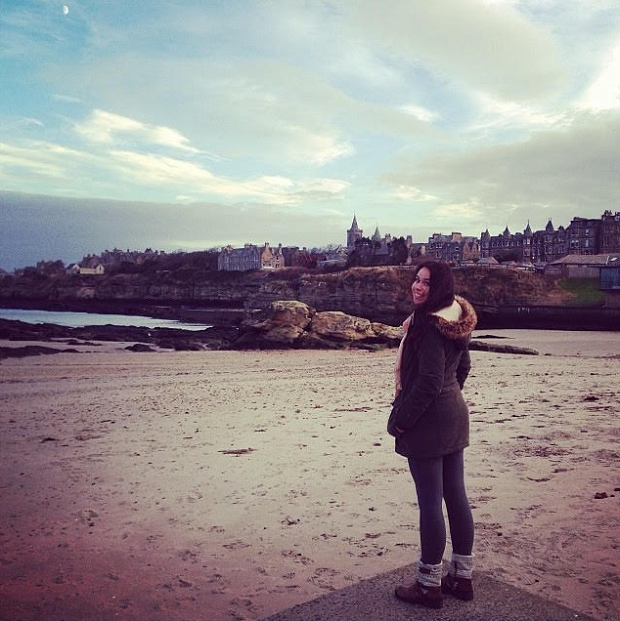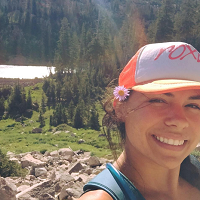
I have always enjoyed an orgasm.
I mean, who doesn’t?
Let’s face it, we’re human—we all have a sex drive. Not just men, but yes, also women. Whether we want to admit it or not, sex is part of our basic human nature.
But for those of us who were sexually molested as minors, we often start to experiment with these sexual drives and desires much earlier than someone who hasn’t been sexually abused.
At the age of 13, while other kids were outside building forts and rollerskating, I was hiding in the bathroom, practicing putting condoms on bananas. I had a journal where I kept a list of goals and some of those goals were to perform or receive sexual activities by the time I turned 14. My “go-to reading” was the sex column in Cosmopolitan. I still remember reading about how ice can give your man the best pleasure of his life.
Growing up religious though, I also learned that sex was not okay, and being a girl who enjoys sex? Even worse! I came to understand that girls shouldn’t have sexual thoughts. “This isn’t right,” I’d tell myself. “I’ll be called a slut, or become a sex addict, or worse…maybe…a stripper! What will everyone think? Hurry, suppress those feelings.”
In young adulthood, I was told by an ex that I needed therapy because I was a sex addict. I went to a therapist, who then confirmed and diagnosed me as a sex addict. She gave me homework assignments, one being to not watch anything related to love or sex, and to not even think about masturbating.
I remember thinking, “There’s nothing wrong with me—so what if enjoy sex?!” But there was a part of me that knew I had a warped view of love and wanted to overcome it, so I did the assignments. I suppressed my high desire for sex, and it worked for some time. I didn’t masturbate. I didn’t have sex with my partner. And then, something happened inside me. I began to experience withdrawals. I was scared, and I felt alone and ashamed for wanting to have physical contact with another human being.
I started to beat myself up inside. I had always had low self-esteem, but it hit an all-time low with how I felt about myself. I went through the cycle of shaking and spending nights on my bedroom floor, curled up in a blanket, praying it would all end. I wanted these desires to go away so badly that I even thought about how I didn’t want to be alive anymore.
I talked to my therapist and she gave me another homework assignment. She asked if I knew the difference between love, intimacy, and lust. While I sat there in her small, dark room on the stereotypical therapist couch, I responded: “What do you mean? There is no difference between love, lust, and intimacy. They’re all the same!”
I left her office, but this question haunted me. It lingered in my mind and as hard as I tried to suppress it, I could no longer avoid the fact that I had no idea what the difference was between these feelings.
I sat down late at night with a shaky hand, my fingers obsessively clicking the end of the pen, and started to write down words that made me question my childhood and everything I knew about sex. I was exposed to porn at a very young age, around four or five. I was sexually molested when I was six. When it happened, my little brain couldn’t understand that what I felt wasn’t love. It instead associated the good feelings that I felt (lust) with love and intimacy, and I was never taught otherwise because I didn’t tell anyone what was going on. As I got older, I unknowingly associated lust with love and thought that it was all the same.
I also put my worth and value into sex. If I could make a man happy in bed, then I would be worth something and have value and he would love me. I became really good at making men happy and even bragged about it. It didn’t matter if I had an orgasm or not, I was pleasing someone else and that was all that mattered.
What I later came to understand was that I wasn’t doing it because I enjoyed it—I was doing it out of fear. Fear was the driving force behind my sex life. I was afraid that if I didn’t please my partner, he would no longer love me. I would no longer be of value and had nothing else to offer a relationship. That was my definition of love.
Flash forward to the present moment: as I sit here, writing about my past, in a coffee shop sipping on my unsweetened coffee, my heart races with adrenaline.
I’m scared of being so vulnerable about my past. I’m scared I will be judged or that people will call me crazy. One thing that has helped me overcome this fear is connecting with people who have been through similar circumstances. What helps is remembering that I’m not alone.
In the United States, 1 in 5 girls and 1 in 20 boys are victims of child sexual abuse, and children are most vulnerable to abuse between the ages of 7 and 13. A child who is the victim of prolonged sexual abuse usually develops low self-esteem, feelings of worthlessness, and an abnormal or distorted view of sex. The good news is that people like me can change the way they think with hard work and understanding.
I no longer feel the shame of a lifetime of decisions that revolved around trying to feel love in unhealthy ways.
I’ve told my story and shared what happened to me so many times through therapy, support groups, and conversations with people I trust, including my current partner, that this burden I carried for so long now has no power over me.
I studied love and observed healthy relationships and couples that seemed to be the happiest. I learned about forgiveness, what it meant, and how to forgive not only the person who did this to me but also myself.
I learned what self-love was and how to take care of myself. I learned how to trust people again through spiritual teachings and connecting to a higher power. I asked lots of questions and had to get really honest with myself. I meditated and sat with the darkness of this burden.
Today, I no longer put my worth in sex. I’m done being a victim to my past because it was a terrible way to live—I was merely existing.
If this has happened to you, I’m sorry. I am sorry you are struggling. I want you to know that you are capable of moving through this, but you have to face this demon. It will not be easy, but it will be worth it. The first step is accepting what happened and recognizing that you do not need to feel ashamed—what happened to you is not who you are. Trust that you will get through this.
Write about the experience. If it’s too difficult to write about, write as if it weren’t you. Write as if what happened to you happened to a small animal. Removing yourself from what happened can often make it easier to talk about. The more vulnerable and honest you are, the quicker you can heal. Then burn this piece of writing. As crazy as it may seem, I did this and watching it disappear helped me let go of the experience.
Find a friend, family member, or support group that you trust. Put voice to what happened, and the more you do this, the easier it will be to let go. Until that day comes, I leave you with these words of empathy and remind you that you are loved, you are worth it, and you matter.
Little Dove
Why do you cry? Is it because your wings are bound?
Have you been locked in a cage since you were young?
Have you had nights that you couldn’t sleep?
Have you wished you were somewhere else, anywhere but in your own body?
Little dove, what if I told you you could let yourself out of this cage?
What if I told you the cage is your past—would you keep putting yourself back in there?
Open your tired, crying eyes, wider…now wider!
You aren’t alone anymore.
Your wings might be fragile from not flying for so long, but over time, they will become stronger.
Practice flying. You will fall.
Get up. Try again. Fall. Get up again.
Spread your wings—how does that feel?
They are beautiful. Believe that.
If you could see yourself the way I see you, you would believe it too.
Although you might not feel your wings, I promise you, they are there and they are powerful. They are steady and swift.
Trust them. Trust yourself.
Your heart is racing now, I can see it. Use that as fuel to fly higher.
Tell me your story little dove. I want to hear it and I want to hear you.
I want to see you helping other doves, like you, use their wings.
There you go.
You’re doing it.
You’re flying!
Don’t look down—that cage looks tempting, but you’re free now.
Go be the free bird you were created to be.
Everything is okay now.
Feel the wind on your face and the sun on your wings.
If you get tired, there’s a safe tree for you to rest on to reflect on how far you’ve come.
You are free little bird.
The cage you put yourself in has always been open; you just have to step out of it.
~
Relephant:
Me Too: Another Woman Steps Forward.
~
Author: Heidi Thomas
Image: Author’s own
Editor: Nicole Cameron
Copy Editor: Catherine Monkman








Read 2 comments and reply